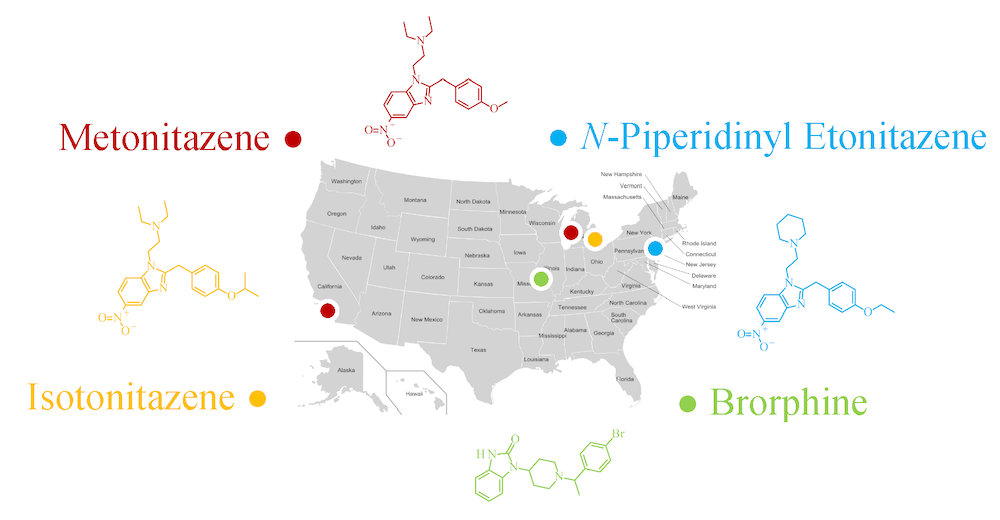The objective of this announcement is to notify public health and safety, clinicians, law enforcement, first responders, medical examiners and coroners, forensic and clinical laboratory personnel, and all other related communities about new information surrounding new generation synthetic opioids in clinical settings after suspected opioid overdoses and presentation to emergency departments, including: metonitazene, N-piperidinyl etonitazene, isotonitazene, and brorphine.
Drug use can lead to adverse events and overdose scenarios where individuals present to emergency departments for clinical evaluation and/or treatment. The culprit can be traditional drugs (e.g., heroin, fentanyl, cocaine, methamphetamine) or novel psychoactive substances (NPS); however, proper drug testing methodologies must be employed for accurate identification and characterization. A partnership between the American College of Medical Toxicology (ACMT) and the Center for Forensic Science Research and Education (CFSRE) was established to comprehensively assess the role and prevalence of synthetic opioids and other drugs among suspected overdose events in the United States. Patients with a suspected opioid overdose presented to an emergency department at a participating site within ACMT’s Toxicology Investigators Consortium (ToxIC). Residual, discarded biological samples were obtained for testing against an expansive library of drugs and other substances.
DOWNLOAD THE ALERT
December 3, 2021
Adverse Effects Linked to Next Generation Opioids Reported in Patients Presenting to Emergency Departments After Suspected Opioid Overdose









